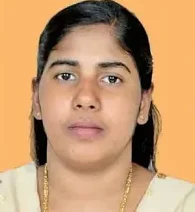Manmohan Singh is an Indian economist, academic, and politician who served as the 13th Prime Minister of India from 2004 to 2014. He is widely recognized for his significant role in shaping India’s economic policies
Early life and education
The life of former Prime Minister Manmohan Singh is known to be that he was born in Gah place in undivided India which is today in Pakistan.He was born on 26 September 1932When India was partitioned in 1947, Manmohan Singh’s family decided that they would stay in India His family migratd to India
He completed his studies while living in India He did his graduation from Punjab University, Chandigarh He did his graduation in Bachelor of Economics as well he did his master degree same university
After studying in India, he obtained a degree in economics from Cambridge University in 1957. He completed his degree in first class
He completed his PhD in Economics in 1962 from nuffield college, oxford
He died on 26 December 2024 when he was 92 years old.
his contribution to country
० Academic and Bureaucratic Career:
Taught economics at various universities, including Punjab University and the Delhi School of Economics.
Worked for international institutions like the United Nations Conference on Trade and Development (UNCTAD).
Served as the Chief Economic Advisor (1972–1976) and later as the Governor of the Reserve Bank of India (1982–1985)
० Finance Minister (1991–1996):
Appointed by then Prime Minister P. V. Narasimha Rao He was not a member of Parliament when he was given the ministerial assignment It is not necessary to be a member of Parliament while becoming a minister but one must become a member within 6 months Then represented Assam State as Member of Parliament he spearheaded India’s economic liberalization, privatization , globalization(LPG) in 1991.
Introduced reforms to open the Indian economy, reduce fiscal deficits, and attract foreign investment, which helped avert an economic crisis.
० As an indian Prime Minister (2004–2014):
In the Congress Government, he served the country as the 14th Prime Minister.
Led a Congress-led coalition government (United Progressive Alliance – UPA).
Oversaw significant economic growth and programs like MGNREGA (employment guarantee scheme) and the Right to Education Act.
Played a crucial role in signing the India-US nuclear deal.
As Deputy Chairman, Planning Commission
He served as Deputy Chairman of the Planning Commission in 1985 when Rajiv Gandhi was the Prime Minister He completed his 5-year term as deputy chairman



